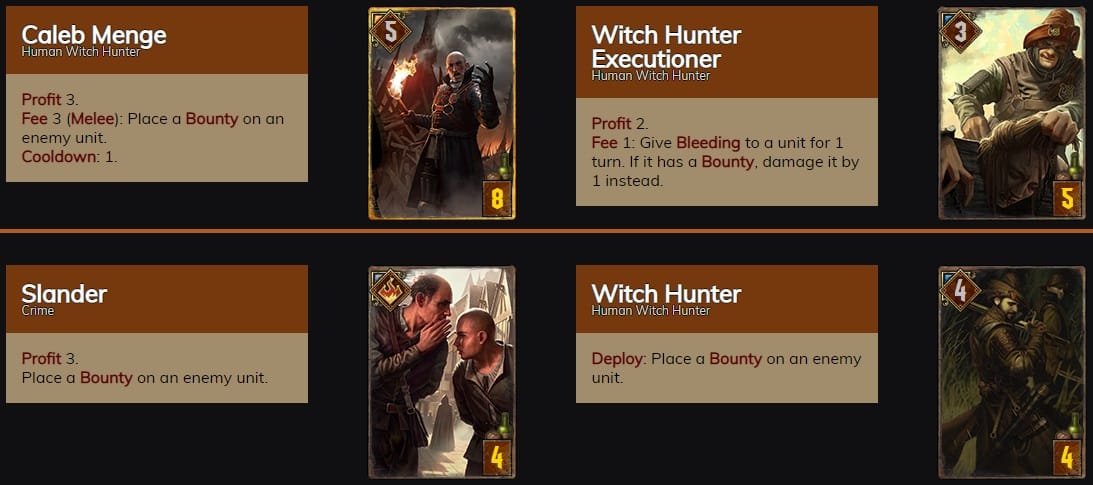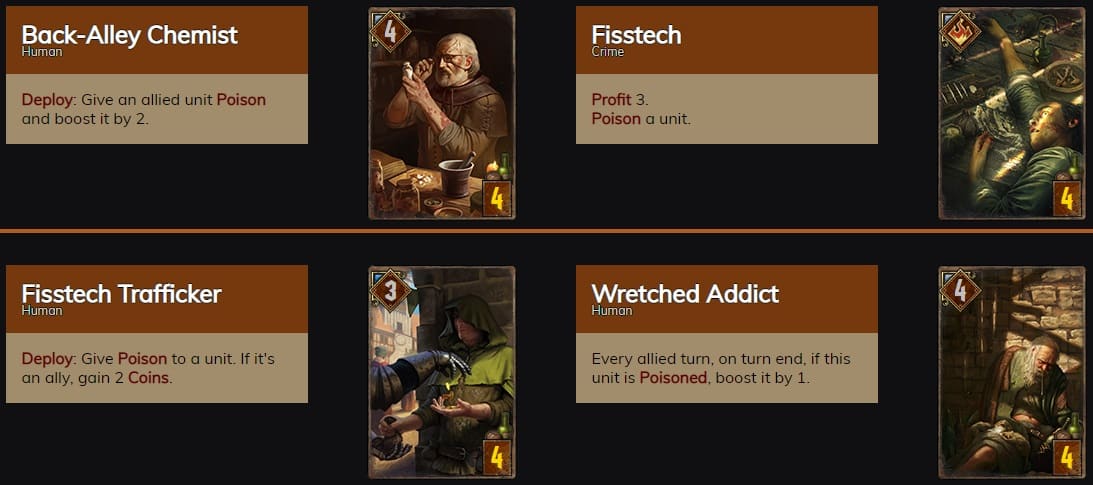Hey guys, welcome to our final Syndicate card review. Our new content team member Yangtse42 sat down with Pajabol and wusubi to quickly review the new cards that don't belong to a specific gang. Stay tuned for the meta report update.
You can check out our reviews of all the new gangs. Tidecloaks - Crownsplitters - Blindeyes - Firesworn - Cutups.
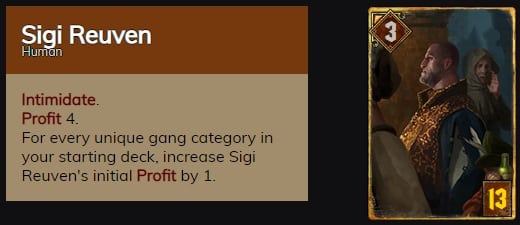
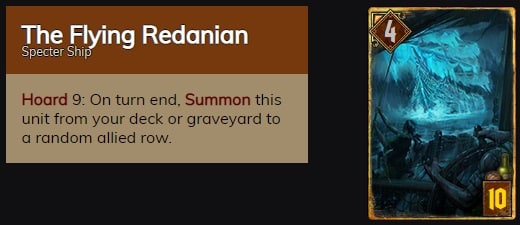
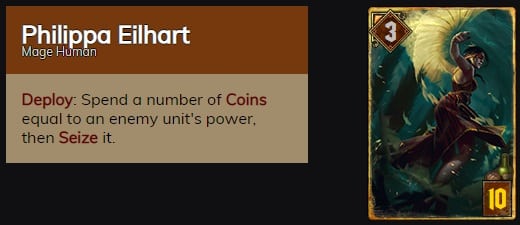
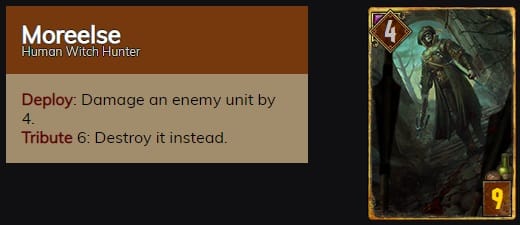
Despite the provision nerfs in the recent hotfix, the Borsodi brothers are still played in Syndicate decks. They are the ideal coin-spenders. When you have some coins in your bank, Ewald can remove multiple units. Combined with Bounty, he's capable of wreaking absolute havoc and potentially even clearing your opponent's board. Horst can be used to keep your other coin-spenders or coin-generating engines alive. Additionally, the benefit of carry-over is very convenient and rewards you for playing one of the brothers in Round 1, as the other brother grants you 2 extra profit when played later.

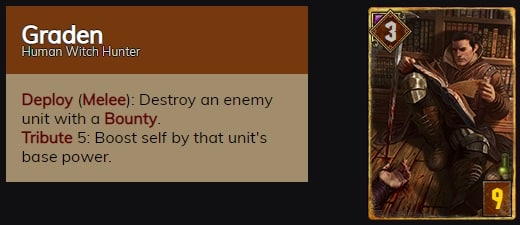
Caleb Menge quickly found his place in almost every Syndicate deck, as Bounty is an extremely rewarding mechanic. You usually want to use him on units with base power higher than 4. You invest 3 coins and get 4 (or more) in return. This can quickly get out of hand, which is why he got nerfed in the recent hotfix and now has a cooldown. You can put Bounty on one unit per turn. Combined with damage cards like Witch Hunter Executioner and Ewald Borsodi, Caleb is still a very threatening card and can wipe your opponent's board when unanswered. He plays as an 8 for 8 initially and can place a Bounty immediately. If you put a Bounty on a 5 strength unit and Caleb gets answered, you can capitalize on the Bounty, resulting in a 10 point play for 8 provisions. The potential of this card is crazy.
Witch Hunter Executioner is a wonderful spender on his own and even grants you initial profit. Combined with Caleb, Slander and vanilla Witch Hunter, this card kills units with Bounty and makes additional profit, which you can then use to apply more and more Bounties. This makes the Bounty package very consistent and powerful.
Slander and Witch Hunter are the secondary ways of applying Bounty. You want to run at least one copy of each card. Slander has the benefit of being a Crime, which offers additional synergies (like boosting your Intimidate units) on top of being a non-interactive play that also generates some coins on its own. Witch Hunter provides a 4 power body and if he places a Bounty on a 4 base power unit which you then kill, he effectively played as an 8 for 4.
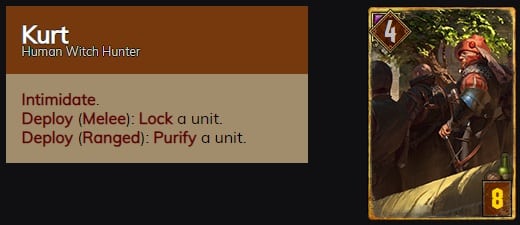
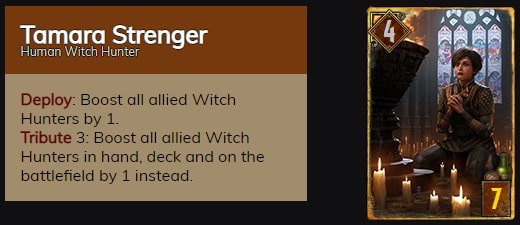
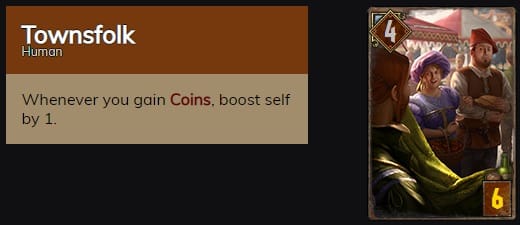
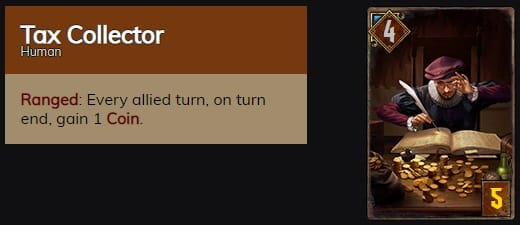
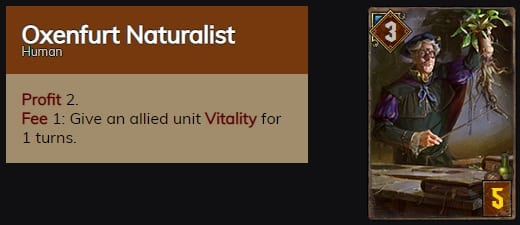
These four cards are the Syndicate poison, or rather self-poison package. The card design here is pretty intriguing and some of the cards are good enough to see play under different circumstances. However, similarly to the 5 provision slot, the 4 provision slot is also highly contested in your average Syndicate deck. You will always have two copies of Swindle. Slander and Witch Hunters complete your Bounty package. Sea Jackal and Fence are just marvelous. Renegade Mage is a staple card for KoB decks and you need one cheap Firesworn bronze for Sigi. This leaves you with almost no free slots.
Back-Alley Chemist is a simple 6 for 4 and as such, he has actually seen some play in Syndicate decks as a filler card. While offering synergy with Wretched Addict, this combo isn't worth playing, because as we mentioned, Syndicate can offer you considerably better 4 provison cards.
Fisstech and Fisstech Trafficker are interesting and situationally powerful, albeit often very counterproductive cards. If the Syndicate meta shifts from abusing Bounty, both cards could see play. This package benefits from self-poisoning, but can also remove a tall unit when necessary. Fisstech works similarly to Slander. It can enable your Wretched Addict, or be combined with Fisstech Trafficker to murder a large unit. Trafficker is basically more versatile Fangs of the Empire. Playing as a solid 5 for 4 while potentially enabling your Wretched Addict is an option, but so is poisoning an enemy unit.



